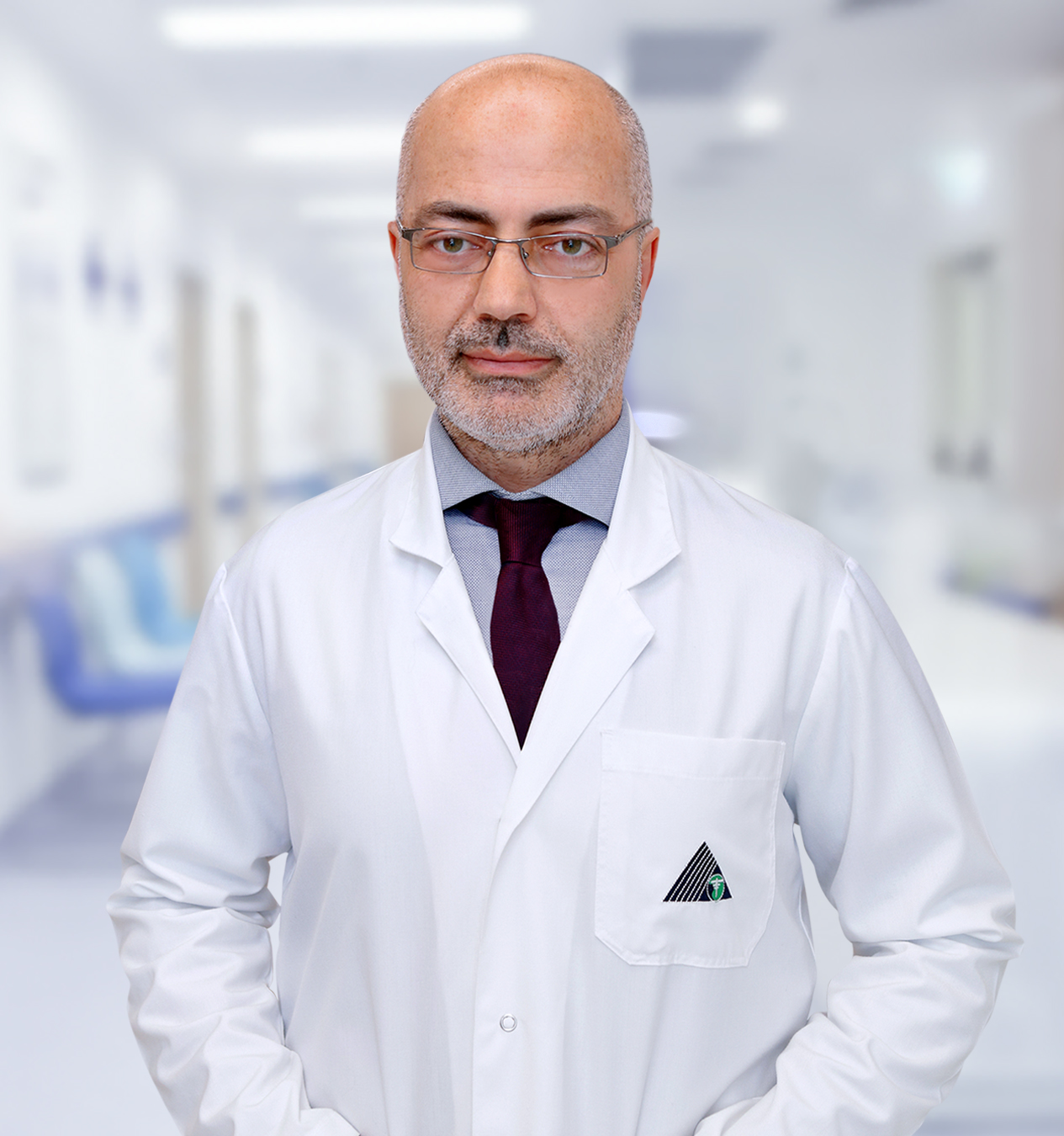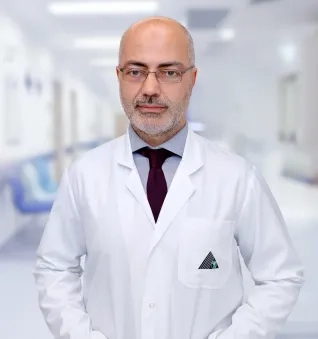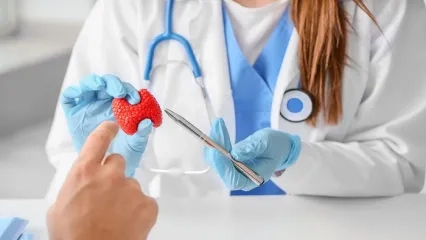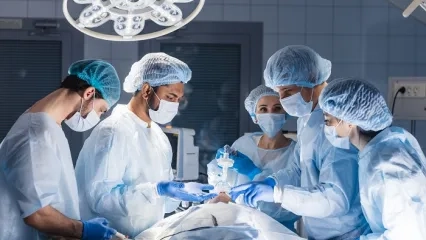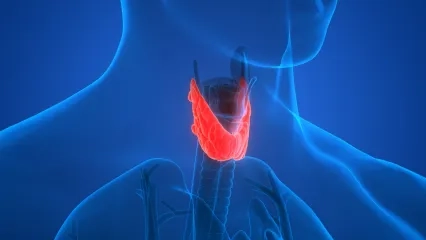Alo Yeditepe
Alo Yeditepe
Thyroid Storm
Prof. Dr. Erhan Ayşan, General Surgery & Endocrine Surgery Specialist from Yeditepe University Hospitals Parathyroid Transplant Clinic, shared important information.
What is Thyroid Storm?
The thyroid gland secretes two hormones, called T3 and T4, which have very important roles in our daily lives. These hormones play a decisive role in all our functions, including walking, speaking, digestion, heart rate, blood pressure, pulse, and even thinking and perception. The sudden and abundant release of thyroid hormones, which are so functional, into the blood is called a thyroid storm. In other words, the thyroid gland rapidly releases large amounts of T3 and T4 hormones into the blood.
What are the Symptoms of Thyroid Storm?
Tiroid bezi günlük hayatımızda çok önemli rolleri olan T3 ve T4 isimli iki hormon salgılar. Bu hormonlar yürüme, konuşma, sindirim, kalp hızı, tansiyon, nabız hatta düşünme ve algılamaya kadar her türlü fonksiyonumuzda belirleyici rol oynarlar. Bu kadar çok işlevsel olan tiroid hormonlarının aniden ve bol miktarda kana verilmesine tiroid fırtınası denir. Yani tiroid bezi bol miktarda T3 ve T4 hormonunu hızla kana verir.
What Are The Symptoms of Thyroid Storm?
Thyroid storm sometimes gives signs that can be seen from the outside, and sometimes it progresses by damaging the internal organs without any external findings.
The most obvious and earliest finding in a patient with thyroid storm is "palpitation". The patient clearly feels the heartbeat in the left chest area. Patients express this to us as “it feels like my heart is going to pop out”. Meanwhile, the pulse rate also increases and the pulse is not rhythmic, sometimes the intervals between the heart beats get longer, sometimes these intervals are shortened.
High blood pressure and headache associated with it are other important finding. This situation can be life-threatening, especially in elderly patients with high blood pressure (hypertension). Since these people also have atherosclerosis, the veins may not withstand the rising blood pressure and may crack and cerebral hemorrhage may occur. This is a life-threatening emergency.
Sleep disturbance, waking up frequently at night, and being disturbed by the heat are the symptoms we encounter frequently. When you see people walking around in thin clothes and not feeling cold in cold weather, you should warn them to see an endocrinologist.
Rapid weight loss without dieting is another finding. The phrase “I eat but do not gain weight” can make many people happy, but these people may experience a thyroid storm and the internal organs may be seriously tired due to the acceleration of metabolism. These people may have to cope with serious organ failures in the future.
Emotional disturbances, depression (withdrawal), or nervousness (anxiety) may also be observed in patients with thyroid storm. The changes in the behavior of someone you have known for years, whose personal characteristics and habits you know, decrease in his/her sharing with you, or, on the contrary, his/her getting angry and nervous about unnecessary things are also findings that will indicate thyroid storm.
Changes in toilet habits, frequent toileting, and diarrhea attacks are other findings related to the digestive system.
How to Diagnose Thyroid Storm?
Diagnosing a thyroid storm is not difficult. Of course, everything starts with suspecting the disease when these complaints first appear. The physician to be consulted first is an endocrinologist. A very high level of T3 and T4 hormones in blood tests and a low TSH hormone allow for the diagnosis. A thyroid ultrasound must be performed. Ultrasound will give us information about both the cause of the disease and the treatment method. The entire thyroid gland may be overactive, or there is an overactive nodule in the thyroid gland and this nodule is the cause of the disease. Ultrasound shows us these.
How to Treat Thyroid Storm?
The first line of treatment is drugs. We have reliable medications at our disposal to block the hormones secreted from the thyroid. Starting these in the right doses will not only relieve the patient in a few days but also protect the internal organs from the effects of the storm. In the later period, treatment can be continued with medication, radioactive iodine (atom therapy), or surgery. The endocrinologist should decide which of these options to apply.
About
Faculty and Year of Graduation:
Istanbul University, Cerrahpasa Faculty of Medicine, 1994
”
See Also
- What is a Parathyroid Adenoma? Symptoms and Treatment
- What is Calcitonin Hormone? Calcitonin Hormone Deficiency
- If the Size of the Thyroid Nodule is Over 4 cm, Be Cautious!
- How Does High Calcium in Blood Cause Complaints?
- A First in the Literature: Parathyroid Cell Obtained from Thyroid Stem Cell
- Diagnosis in Thyroid Diseases
- Assessment of Hyperthyroidism
- Hashimoto's Thyroid Disease
- Thyroid Tumor (Cancer)
- Graves' Disease
- Thyroid Nodules
- Thyroid Surgery
- Assessment of Hypothyroidism
- What is the Harm of High Calcium in the Blood?
- Frequently Asked Questions in Thyroid Diseases
- Atomic Therapy (Radioactive Iodine Therapy)
- Which Thyroid Nodule Can Be Treated Without Surgery?
- She Was Relieved of Her Pain When the Missing Parathyroid Gland Was Found in The Chest Cavity
- Thyroid Storm Can Turn Life Upside Down
- Recovered From Thyroid Nodule with Needle Melting Method
- Stress Triggers Thyroid Diseases; These Occupations Are At Risk!
- Turkish Physician Developed a Novel Method for Parathyroid Transplant
- What Should Be Considered After Parathyroid Surgery?
- Parathyroid Diseases and Treatment
- They Said It Was Thyroid Cancer, But It Turned Out to Be Parathyroid Adenoma!
- The Frequency of Thyroid Nodules and Thyroid Cancer in Young People is Increasing!
- Thyroid Cancer Treatment Is Possible Without Removing The Entire Thyroid Gland
- T4 Hormone in 13 Headings
- Questions About Thyroid Diseases
- Thyroid Diseases
- Goiter (Thyroid Gland) Biopsy
- Radiofrequency Therapy in Thyroid Nodules
- What Is Autoimmune Hypoparathyroidism or Hypocalcemia?
- What Is The Loss of Low Calcium Level in Blood?
- What Is The Symptoms of Calcium Level Elevation (Hypercalcemia)?
- How It Is Made The Parathyroid Adenoma Operation?
- What Is Parathyroid Hyperplasia?
- Parathyroid Tumors
- What Are The Parathyroid Glands?
- The Incidence of Thyroid Cancer Has Increased! There is Turkey in the Research!
- Key Surgery Performed In Turkish Hospital For First Time
Alo Yeditepe


